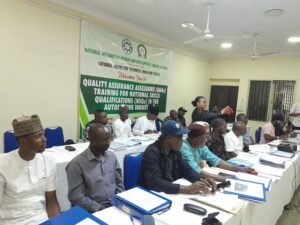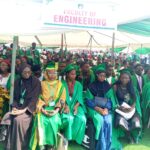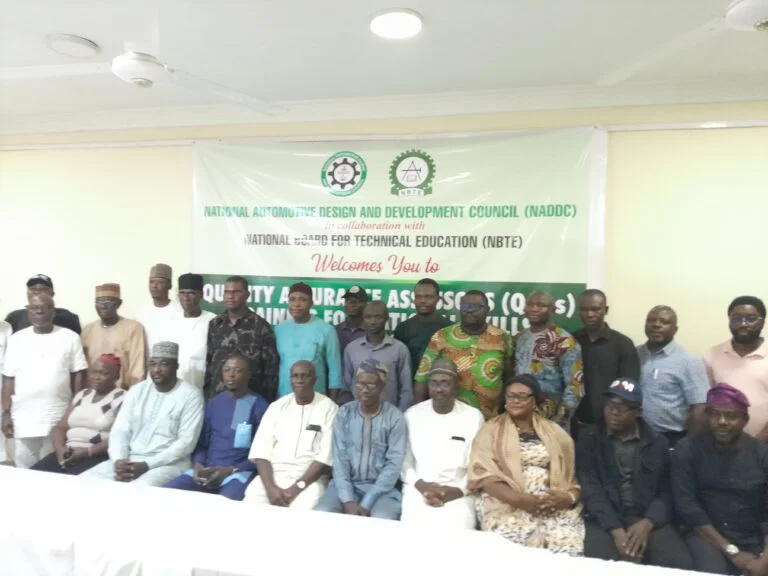By Lucy Ogalue
The Federal Government is boosting Nigeria’s automotive sector through competency-based training to produce certified quality assurance assessors under the National Skills Qualification Framework (NSQF).
The Director-General, National Automotive Design and Development Council (NADDC), Mr Joseph Osanipin, represented by his Director, Industrial Infrastructure, Dr Nua Omisanya, said this in Abuja.
Osanipin spoke at the official closing of a two-week Quality Assurance Assessors Training for National Skills Qualifications (NSQs) in the Automotive Industry it organised for 30 participants in Abuja.
The News Agency of Nigeria (NAN) reports that the event was organised in collaboration with the National Board for Technical Education (NBTE).
According to the director-general, the initiative aims at equipping trainers who will ensure that automotive technicians across the country meet nationally approved skill standards.
Osanipin said the training would focus on areas such as Compressed Natural Gas (CNG) conversion, maintenance of Electric Vehicles (EVs), and modern diagnostic techniques.
“These are the new innovations in Nigeria’s automotive industry and we need more learners to be trained so that vehicles on our roads will be well-managed and well-maintained.
“Before the training, the industry had only 15 assessors, but the ongoing programme will add 30 more, raising the number to 45.
“This will help us meet the skills gap in the auto industry.
“The participants were drawn from all six geopolitical zones, representing state coordinators, industry players, and assembly plants,” he said.
According to him, the assessors will train and evaluate learners on quality assurance and competency while on the job, ensuring standardised practices instead of the trial and error approach common in the past.
“With this system, maintenance of emerging technologies like CNG and electric vehicles will follow standard procedures,” he said.

The Lead Facilitator of the programme, Mr Olubode Majiyagbe, reiterated the importance of the training to the sector and the country at large.
Majiyagbe said that before now, training across various sectors, including automotive, lacked uniform standards, noting, however, that the NSQF would ensure both national and internationally recognised qualifications.
He said the training, which spans three to four months, was divided into phases.
“The first phase, a two-week in-class activity, is being concluded, after which participants will proceed to fieldwork for eight to twelve weeks before returning to complete the programme.
“Successful participants will be awarded the Quality Assurance Assessor qualification,” he said.
He commended the NADDC boss for introducing the framework to the automotive sector and urged participants to take the training seriously and become advocates for its adoption nationwide.
Executive Governor for the 2025 Class, Mrs Joke Onireti, said the training would eliminate “trial and error” practices among mechanics by ensuring that they specialise in specific areas of vehicle maintenance.
“You either know your job or you do not. If you are trained in periodic maintenance, you should specialise and excel in it, rather than being a jack of all trades,” she said.
Onireti explained that assessors would evaluate mechanics’ skills in their chosen areas, identify strengths, and guide further training where necessary.
“This will ensure that when you take your car for repairs, you get value for your money without further damage being done,” she said.
She said that the programme adopted a tiered certification approach, from entry-level trainees (Level 1) to advanced practitioners (Level 3), with each level reflecting the holder’s ability to work independently and meet industry standards.
One of the participants, Mrs Divine Isi of Floritech Motors, Warri, Delta State, described the training as impactful.
Isi said the training had significantly expanded her knowledge in spite her nearly two decades of experience in the automotive industry.
She expressed gratitude to NADDC for the opportunity.
Another participant, Mr Tunde Onakoya, of Autoclinic Academy, Ibadan, also lauded NADDC and the National Board for Technical Education for the initiative.
He said the programme would raise the capacity and skills of workers in the automotive industry, enabling them to compete globally.
Onakoya emphasised that the training, delivered and assessed under the framework, would foster industrial growth and ensure Nigerian automotive professionals meet international standards.
The participants commended the facilitators for their expertise and pledged to become advocates for the framework across the country.
They also expressed optimism that the initiative would enhance job creation, improve service quality, and position Nigeria as a competitive player in Africa’s auto industry. (NAN)(www.nannews.ng)
Edited by Isaac Ukpoju












